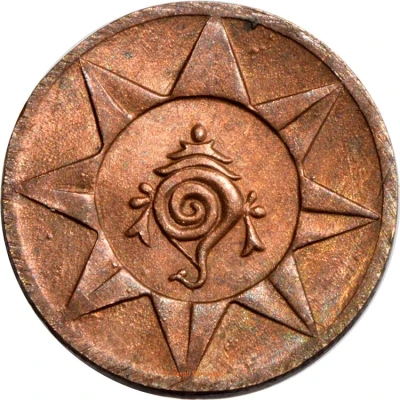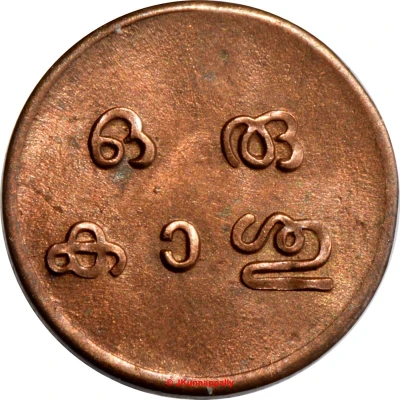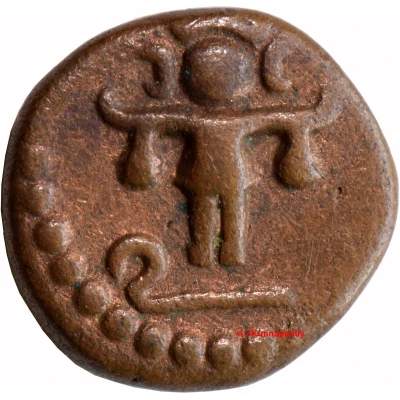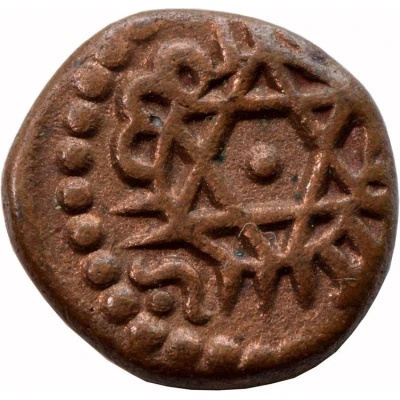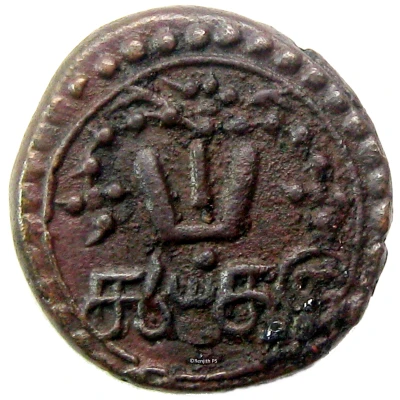
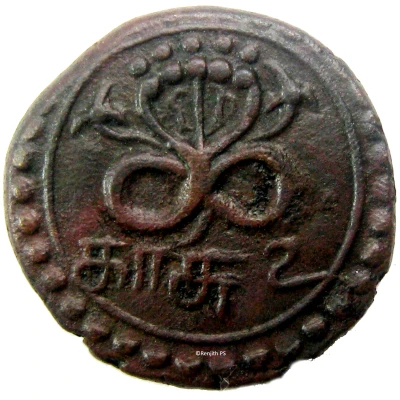

© Renjith PS
2 Cash - Uthrittathi Thirunal Gowri Parvathi Bayi
| Copper | 1.12 g | 13 mm |
| Issuer | Kingdom of Travancore (Indian Hindu Dynasties) |
|---|---|
| Type | Standard circulation coin |
| Years | 991-997 (1815-1821) |
| Calendar | India - Kollam era |
| Value | 2 Cash (1⁄224) |
| Currency | Rupee (1729-1947) |
| Composition | Copper |
| Weight | 1.12 g |
| Diameter | 13 mm |
| Shape | Round (irregular) |
| Orientation | Coin alignment ↑↓ |
| Demonetized | Yes |
| Updated | 2024-10-05 |
| Numista | N#49044 |
|---|---|
| Rarity index | 86% |
Reverse
Hooded serpent flanked by lotus blooms, lettering "Kasu 2" (Cash 2) below
Lettering: காசு ௨
Translation: Cash 2
Edge
Plain
Comment
- Uthrittathi Thirunal Gowri Parvathi Bayi (1802–1853) was the Regent of the Indian state of Travancore who succeeded her sister Maharani Gowri Lakshmi Bayi from 1815 till her regency was relinquished in favour of her nephew, Maharajah Swathi Thirunal Rama Varma, in 1829.Reign: 1815–1829
Predecessor: Ayillyam Thirunal Gowri Lakshmi Bayi
Successor: Swathi Thirunal Rama Varma
Full name: Her Highness Sree Padmanabhasevini Vanchi Dharma Vardhini Raja Rajeshwari Maharani Uthrittathi Thirunal Gowri Parvathi Bayi, Attingal Elaya Thampuran, Regent Maharani of Travancore.
House: Venad Swaroopam
Dynasty: Kulasekhara
Religion: Hinduism
Interesting fact
One interesting fact about this coin is that it features a unique blend of Indian and European influences in its design. The coin's obverse side features a portrait of Uthrittathi Thirunal Gowri Parvathi Bayi, the queen of Travancore, surrounded by a wreath inspired by European heraldic traditions. On the other hand, the reverse side showcases a traditional Indian motif of a conch shell and a lotus flower, which are symbols of good luck and prosperity in Hinduism. This fusion of styles reflects the cultural exchange and influences that were prevalent during the time period in which the coin was minted.
